As you figure out how to save for a house, it helps to know that there’s no one-size-fits-all mortgage solution. The right mortgage for you is affordable and customized to your unique needs — whether that means a low down payment, an adjustable interest rate, or a 30-year loan.
For example, you may find you have a five-bedroom taste, but a three-bedroom budget. Follow these steps to get a better idea of how much home you can afford so you can update your search parameters accordingly.
Step 1: Assess your situation
How much house you can afford depends on a variety of factors. The amount you can borrow for a home loan will depend on factors such as:
- Interest rates. Think of interest rates as the cost of your loan. When interest rates are higher, your cost goes up because your interest rate is added to each monthly payment.
- Household income. The median household income in the U.S, CANADA. is just under $65,000. If your household income is higher than the median, you may be able to afford a more expensive mortgage.
- Credit scores. Credit scores are based on the information in a person’s credit report. Generally, the higher the credit score, the more likely it will be that you qualify for a home loan and get a better mortgage loan rate.
A word of advice – some first-time homeowners forget to factor in the additional costs of a mortgage loan and then get sticker shock when they sit down with a lender. These costs can include property taxes, homeowners insurance, homeowners association (HOA) fees, and any additional recurring costs. (Read all fine print closely!) Even if your dream home falls into the typical price range for houses in the U.S., a seemingly affordable home may be out of reach once taxes and fees are included in your monthly mortgage payment.
Generally, financial institutions want to see a debt-to-income (DTI) ratio of 36% or lower to approve you for a loan. This means that all your debt, including the monthly mortgage payment, shouldn’t total more than 36% of your gross household income. However, community-based, not-for-profit credit unions tend to have more flexible standards and are far more likely to consider the member’s complete financial picture in determining financing solutions than big banks.
For example, suppose you expect your income to increase significantly over the next few years. In that case, a credit union may have loan products that can accommodate a higher DTI ratio and allow you to buy a home now.
Step 2: Decide on your down payment
A down payment is a lump sum you pay toward purchasing a house. The higher the down payment, the lower your monthly mortgage payment. The average first-time home buyer puts down about 7% of the purchase price, while repeat buyers’ average down payment is closer to 17%, according to the National Association of Realtors.
So, if you are a first-time buyer putting down 7% on a $200,000 home, you would pay $14,000 and take out a home loan for the remaining $186,000. Putting down 17% would result in a $34,000 down payment with a home loan of $166,000.
Many loan options allow for a smaller down payment in exchange for private mortgage insurance (PMI) or a slightly higher interest rate. If you’ve had trouble saving for a home, choosing a loan that requires a lower down payment can help. Speak with your local credit union mortgage expert for more details on this level of flexibility.
Step 3: Consider your future plans
Remember that mortgage loans and home loans are designed as long-term propositions. Nearly 90% of homeowners choose a 30-year fixed-rate mortgage. Beyond, “What type of mortgage should I get?” ask yourself these questions:
- Are you hoping to purchase your forever home?
- Do you plan to move in the next few years?
- Will you be expanding your family?
Questions like these can help you decide which loan type makes the most sense for your circumstances. For example, if you’re planning to move soon, locking in a low-interest 30-year loan may not benefit you as much as taking out an adjustable-rate mortgage with a “teaser” rate. But on the other hand, if you have no plans to relocate, a conventional fixed-rate 30-year loan eliminates the possibility of future rate hikes.
What type of mortgage should you get?
Mortgages involve multiple components that make them highly customizable and allow you to pick the options and features that best fit your needs. Consider these elements:
- Term length. As mentioned above, the most common term length for a mortgage is 30 years, followed by 15 years. Some financial institutions will work with you to create a customized term length, such as 10 or 20 years. The longer your mortgage term, the more interest you will pay. However, the monthly payment for longer-term loans will be smaller.
- Interest rate. The interest rate is calculated as a percentage of the original loan amount, known as the principal sum. It is the money you, the borrower, pay to the lender each payment period. There are two primary interest rate types:
- Fixed interest rate. A fixed interest rate is a set percentage that does not change throughout the loan unless you choose to refinance.
- Variable interest rate. A variable interest rate, often referred to as an adjustable-rate mortgage (ARM), changes over time.
- Type of loan. There are many different types of home loans. Some are government-backed or cater to first-time homebuyers. Others are intended for investment properties or planned short-term purchases.
Compare Estimates
The best way to learn about your specific loan options is to get estimates from a variety of lenders. Lenders compete for borrowers’ business, so it’s often a good idea to get several loan estimates to ensure you’re getting the best deal that works for your needs.
When you are collecting estimates, make sure to include your local credit union. Because credit unions are community-based not-for-profits, they can often offer more competitive rates than banks that answer to investors and shareholders.
Choose Your Home Loan
Once you’ve investigated your options and assessed how each loan type would fit your needs and lifestyle, you’re ready to choose your loan. A credit union mortgage can be a great option for first-time homebuyers and experienced real estate purchasers.
Credit unions have unique and flexible loan products not available at other financial institutions. Use our Credit Union Locator Tool to find a credit union near you and discover all a credit union mortgage has to offer.

